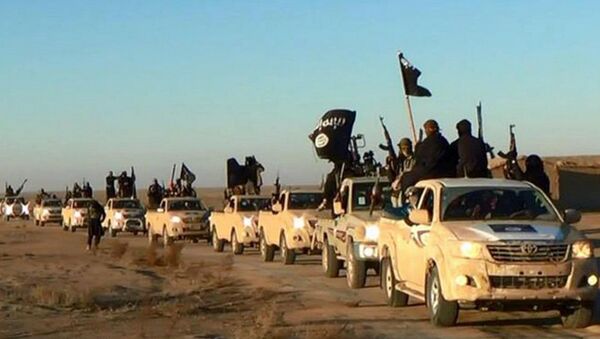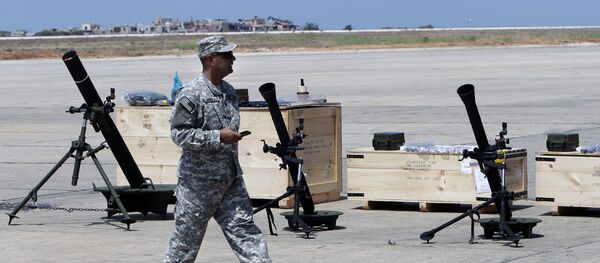Sputnik discussed how disquieting the facts of Daesh's re-emergence are with Dr. David Cook, Assistant Professor of Religious Studies at Rice University and author of the book "Understanding Jihad."
Sputnik: How disquieting are the facts of IS re-emergence? Is it just a final pushback of Daesh or should it be a matter of real concern?
Dr. David Cook: This is Islamic State's [Daesh's] attempt to establish a local no-go zone, you have to remember that most of the people around in that area are still mortally afraid of this group and with good reason of course, and I think this is basically their attempt to say we aren't gone, don't come into this area, if you do, you're going to die, but I don't think that this is much more than that, at least as yet.
READ MORE: Daesh Reportedly Downs 3-Ton US-Made Military Aerostat in Iraq (PHOTOS)
Sputnik: What do you think's contributed to the resurgence of this group and are you generally surprised about it?
Dr. David Cook: No, I'm not surprised that it's resurging, the fact is that is hasn't gone away, there's still at least several thousand fighters associated with it, and it still has patches of territory all over Syria and even some fairly supportive areas in Iraq like Hawija. But the fact is that the caliph has not been caught and as long as that hasn't happened the state is not suppressed. So I think that we should view this in terms of its previous down period which is basically between 2010 and 2013, that it's probably going to try and make a resurgence eventually, I don't feel like this is the resurgence, but I think that it’s more of an establish our territory sort of thing.
Dr. David Cook: Yes. The fact is that its ideology is an attractive force and as a concept it offers much more to Muslim radicals than any other concept that's been developed by them. The idea that you can create a state, that you can establish something in the middle of the Middle East. So right now they're focused, as far as I can tell, mainly on preserving themselves in the Middle East and then aggrandizing their different franchises like in the Philippines, they're very excited about the possibilities of the Philippines.
Sputnik: What about regional powers and superpowers, what should they be doing now to finally destroy this IS ideology once and for all? Or is it just a pipe dream and can we never get rid of this ideology totally, there will always be remnants somewhere around the world?
Dr. David Cook: Well, there will always be remnants, but I think the goal should be to basically try to find the caliph that's really the key, so until the caliph is gone there will always be the concept of the caliphate, you haven't fully destroyed this group until he's in hand, having said that, I do think that for the moment this looks like this will, probably, continue to be the ideology of the Salafi jihadism unless Al-Qaeda and its associates can up with something more attractive, and I don't see that right at the moment.
Sputnik: What's your advice, recommendation with regard to this, it’s been a scourge of the global humanity for the last 10 years now since its introduction, now do you think the governing bodies should be focusing more on diplomacy now that the ideology is at its weakest point? Will they ever be willing to sit around the table and what is it ultimately they want to achieve?
Dr. David Cook: Islamic State [Daesh] will never sit around the table, they can't, but I do think that it's possible that other different islamist groups might be able to be detached from it, the fact is that around any hardcore ideologue there's usually a large group of opportunists and others who's beliefs are no where near as hard set as theirs are and I think the focus right now should be to detach as many of those people as possible from ever associating with this group again. That was the mistake in 2010, at the low point of the group we didn't take advantage of it, that's a fact, the United States and Iraqis and everybody else around, essentially, allowed the group to coalesce around a single leader, so it was ready to go once the opportunities presented themselves inside the Syrian civil war. So I would say try and detach as many of the non-hardcore ideologues and then go after the rest, I think that killing the caliph or getting him under arrest should be a top priority.
The views and opinions expressed by Dr. David Cook are those of the speaker and do not necessarily reflect those of Sputnik.


